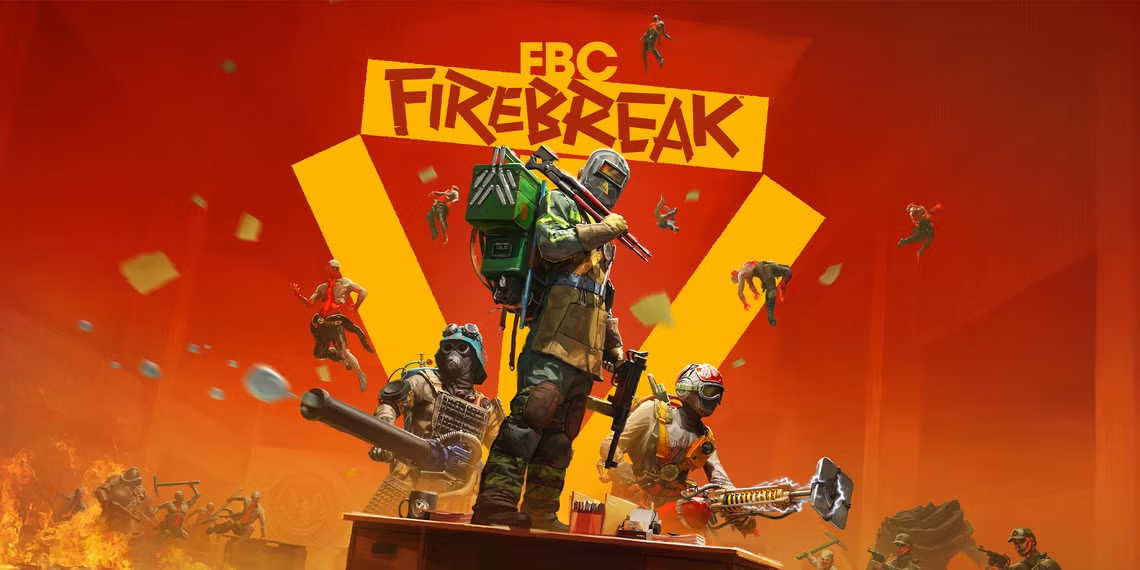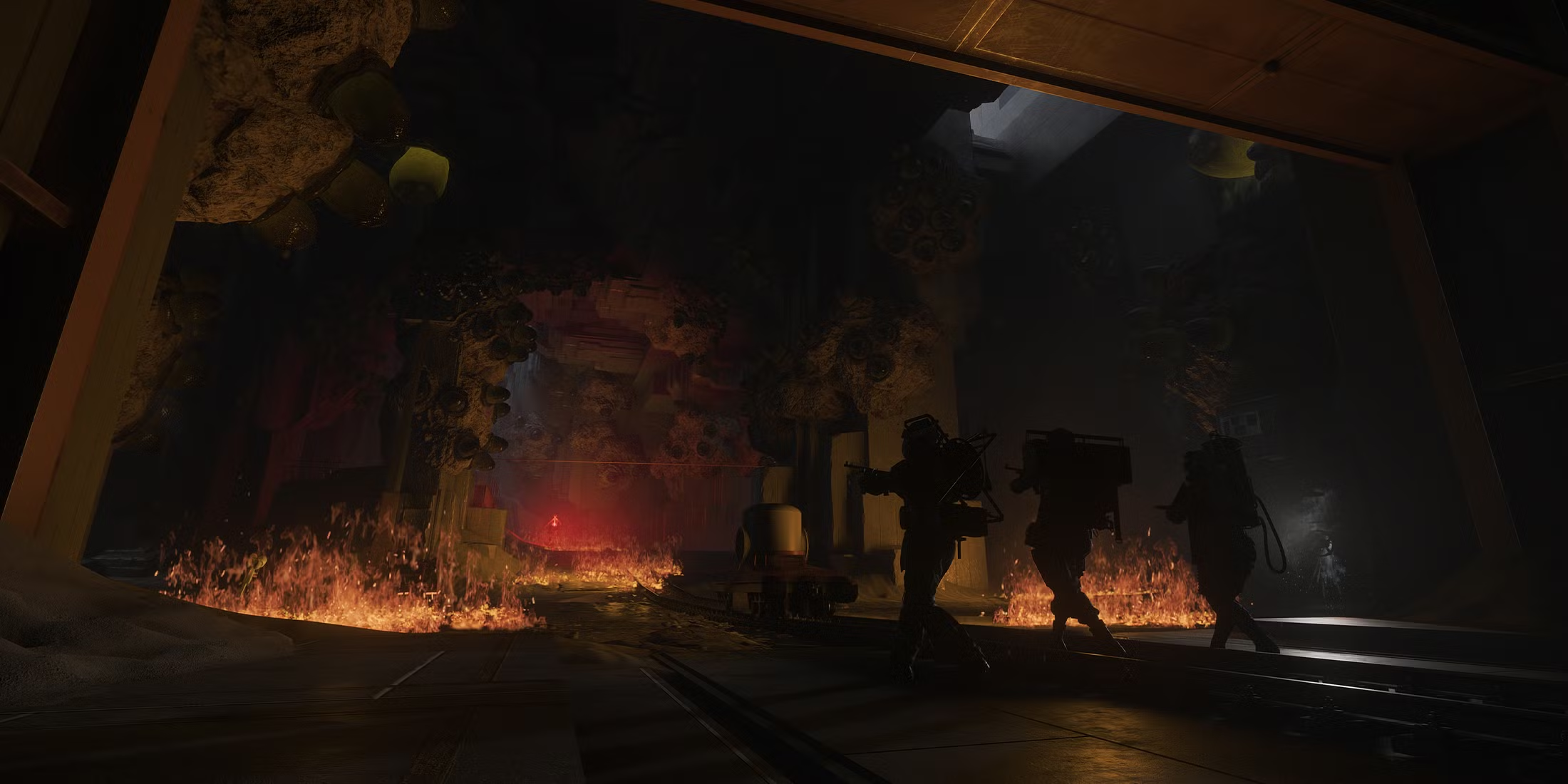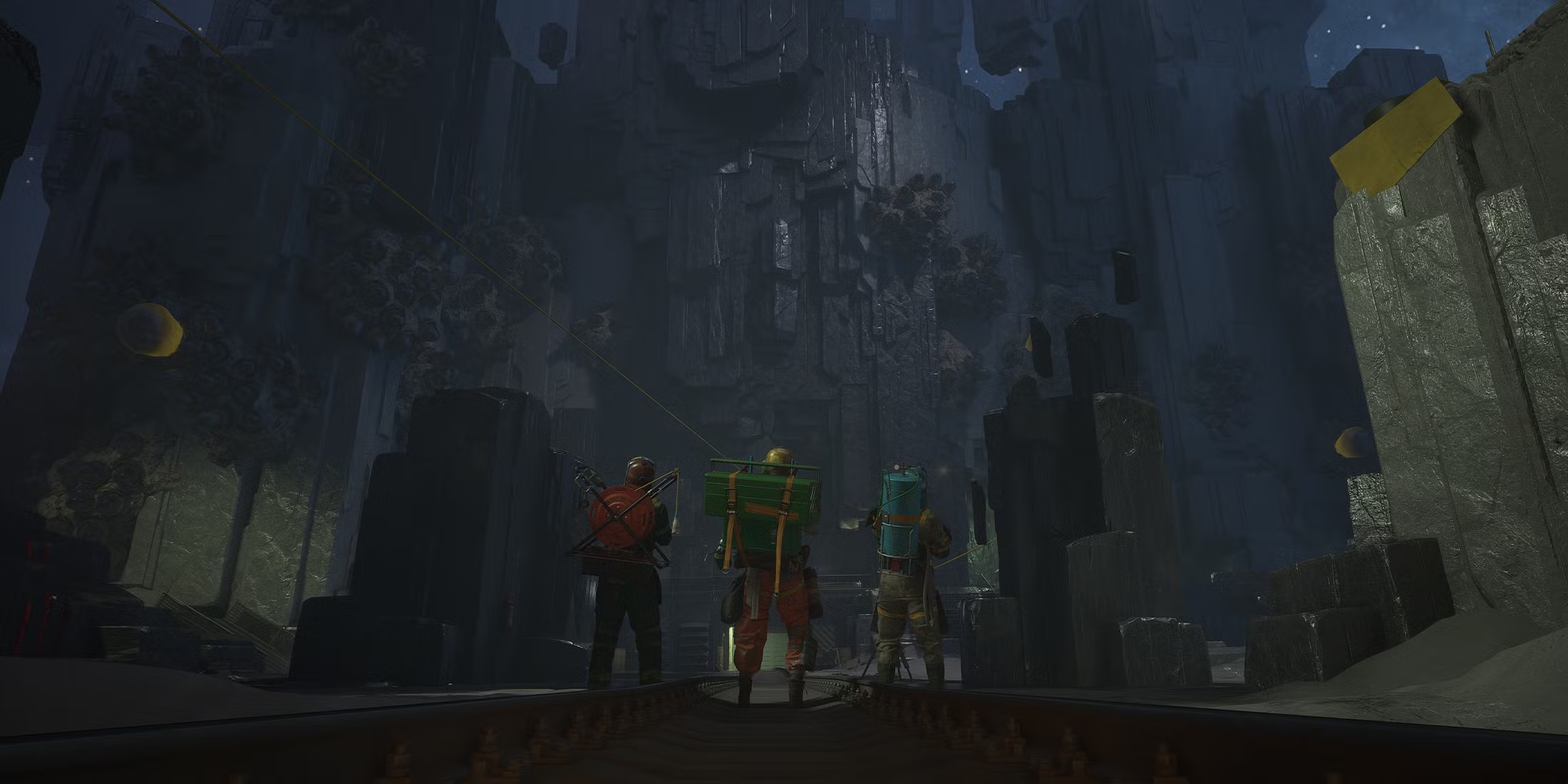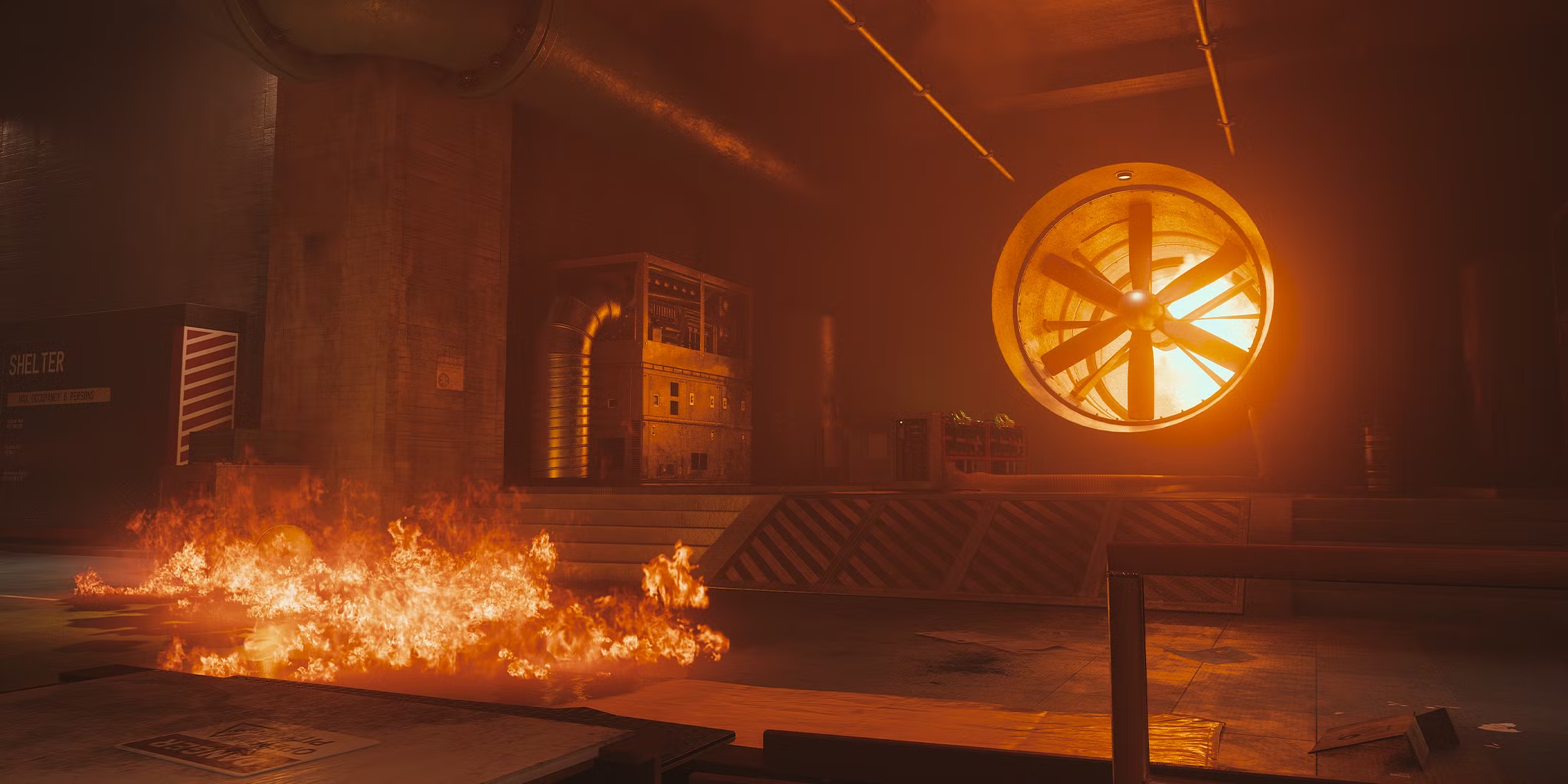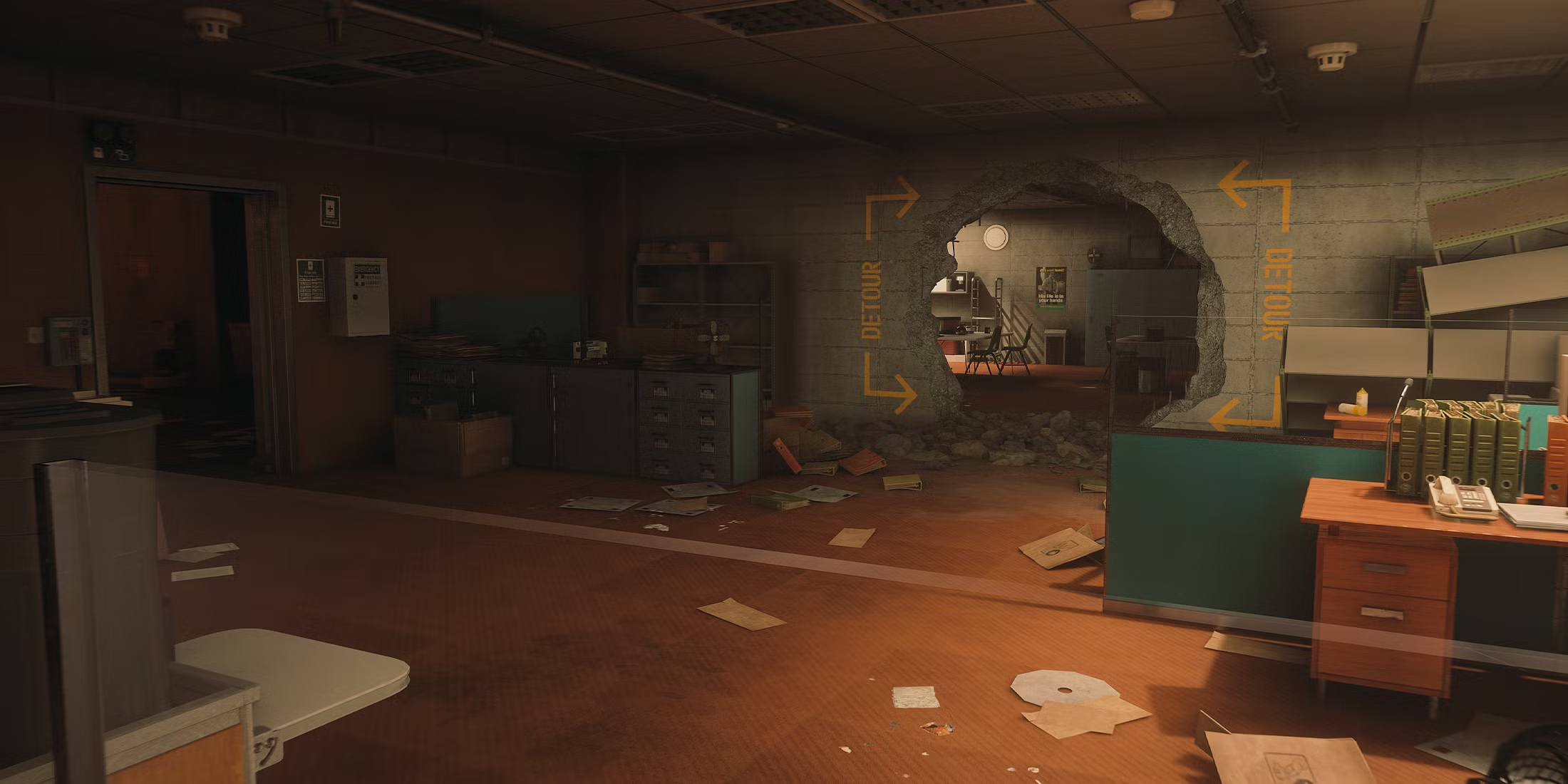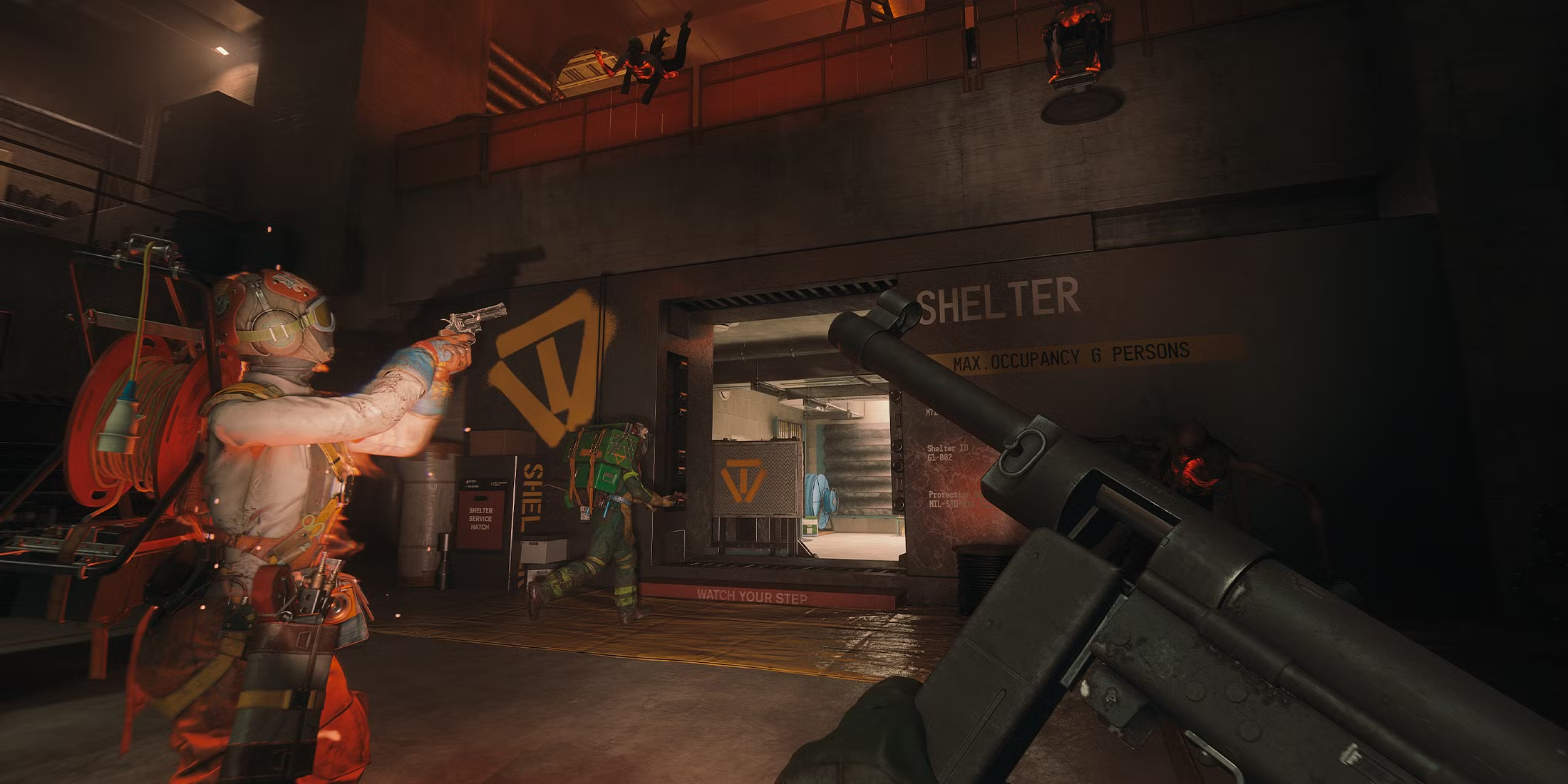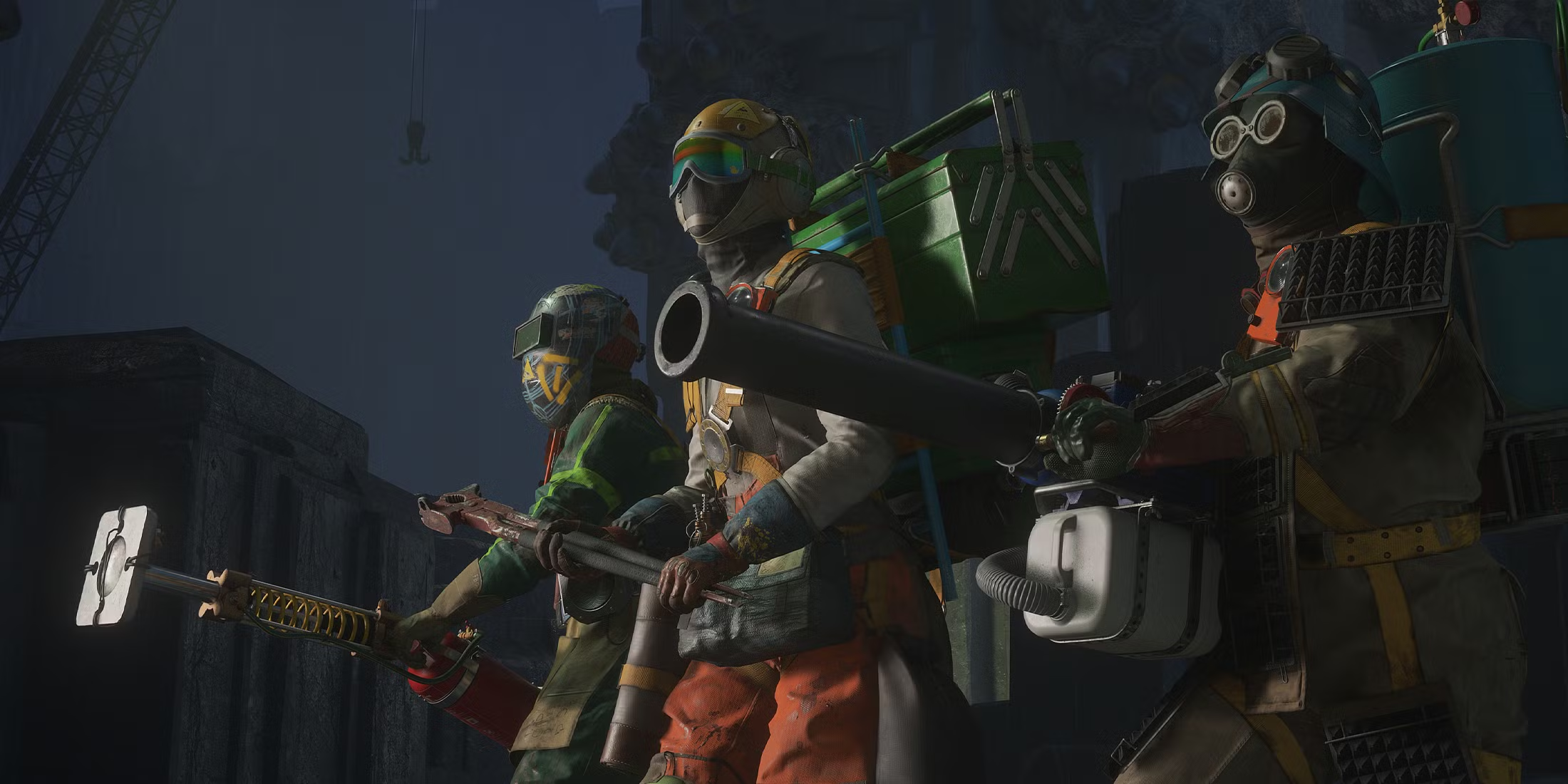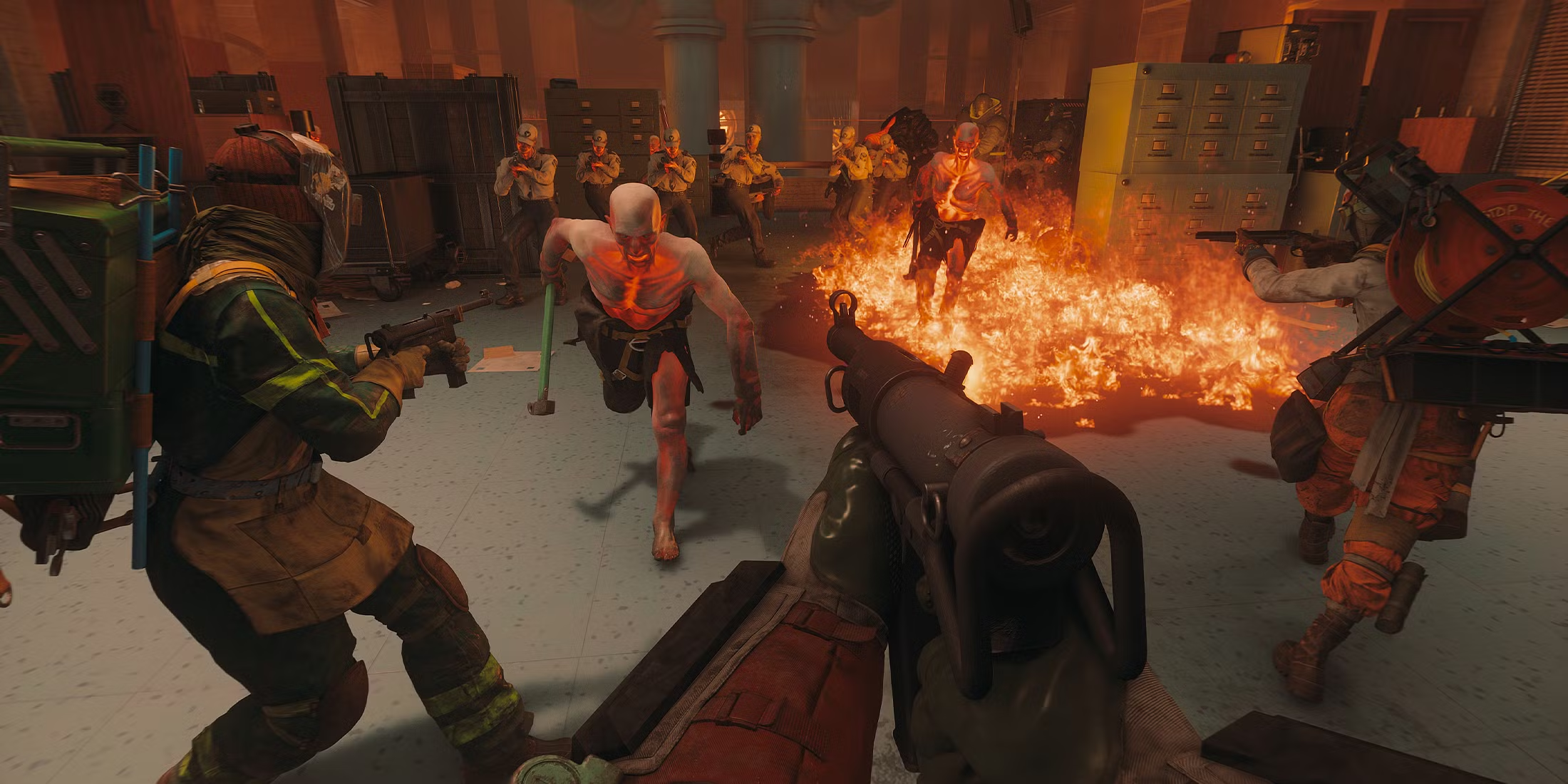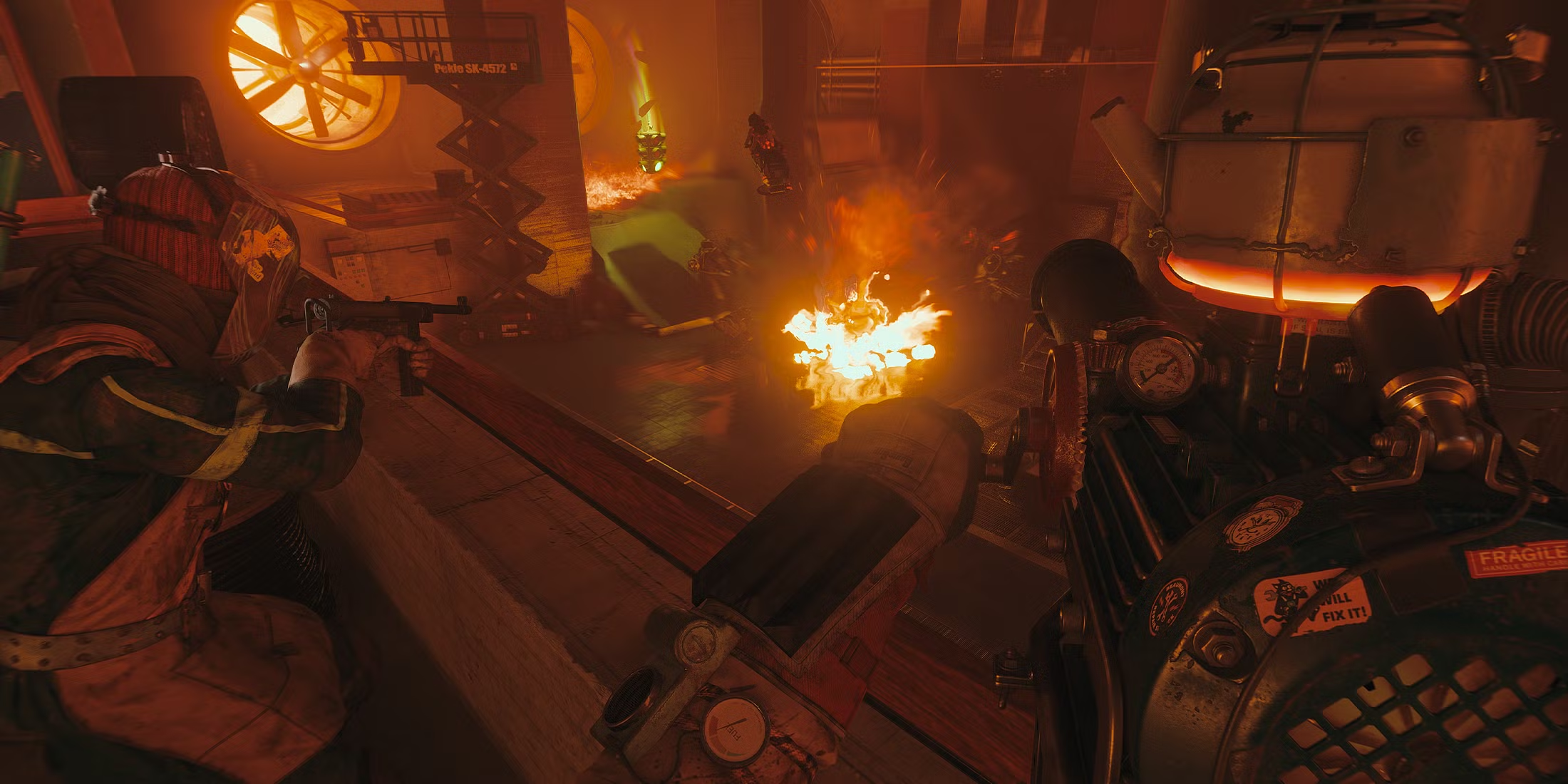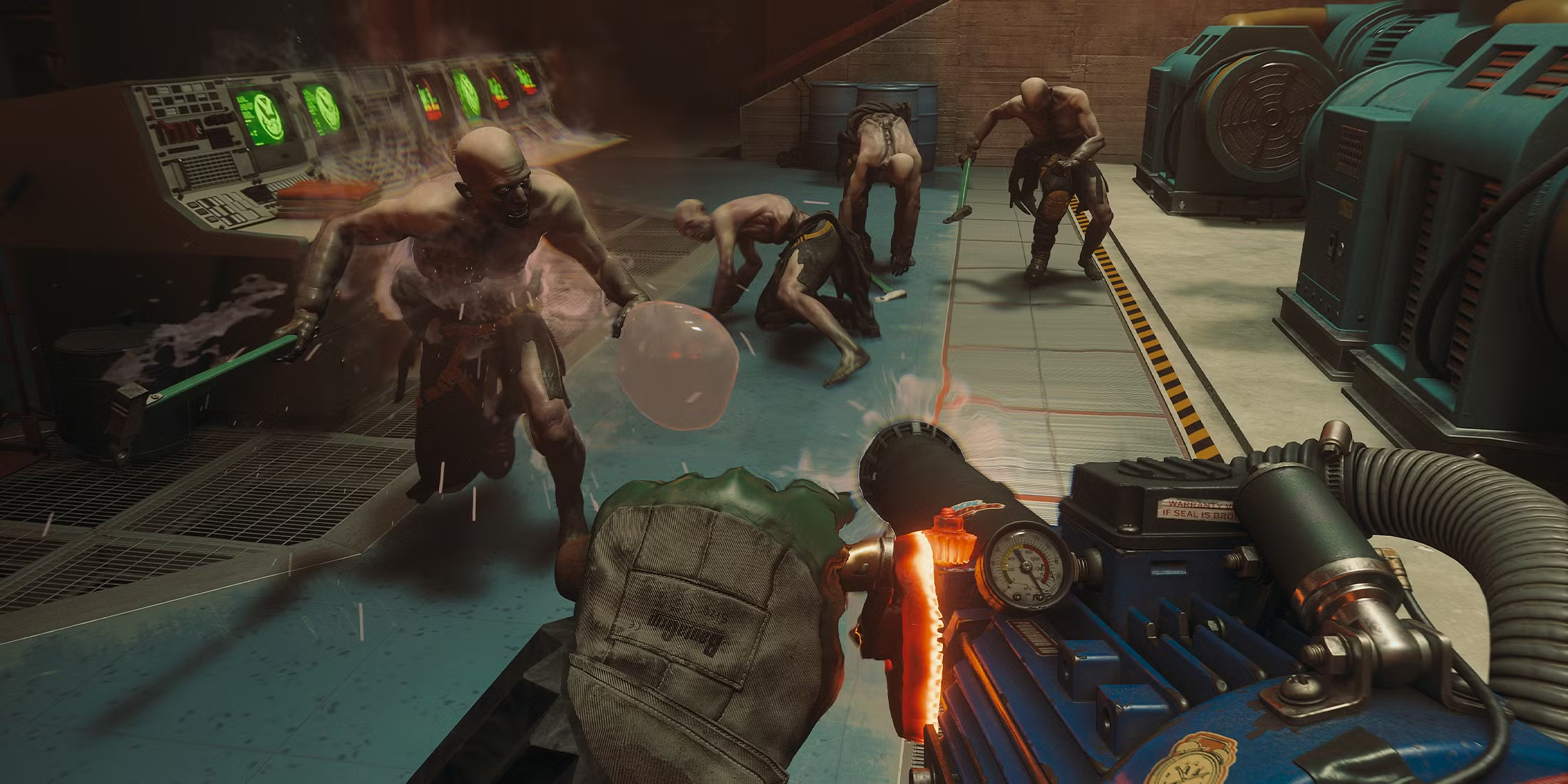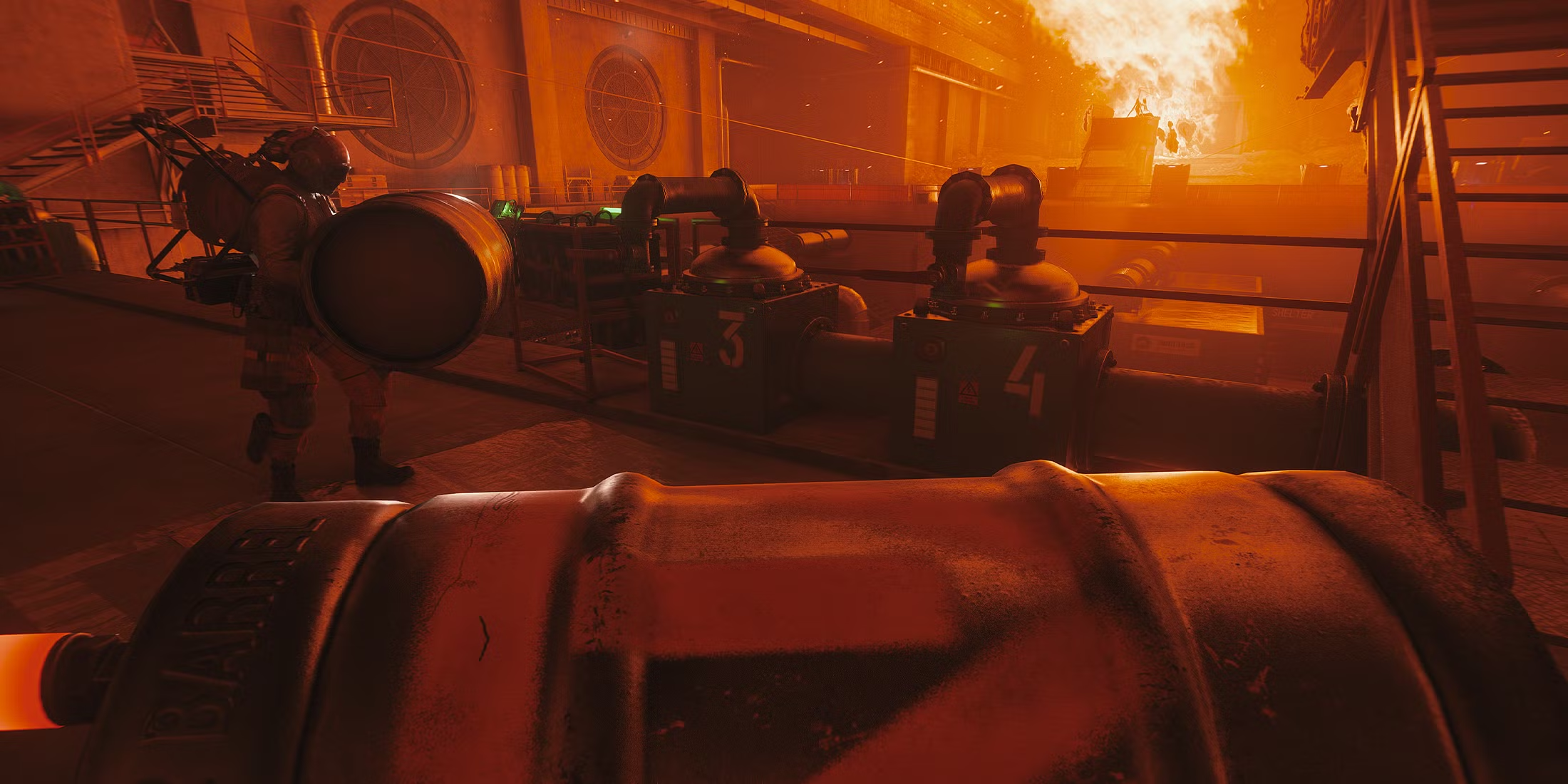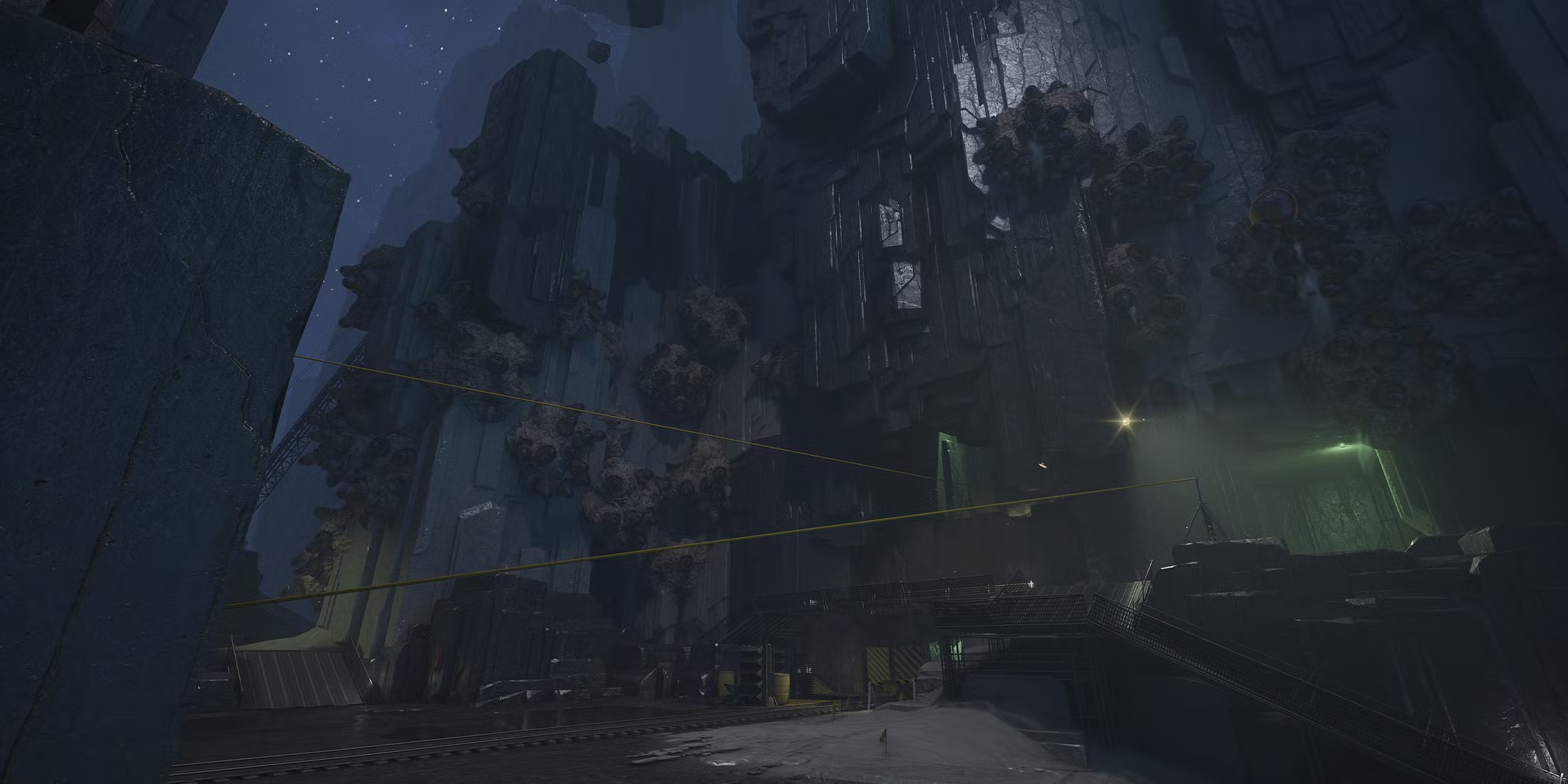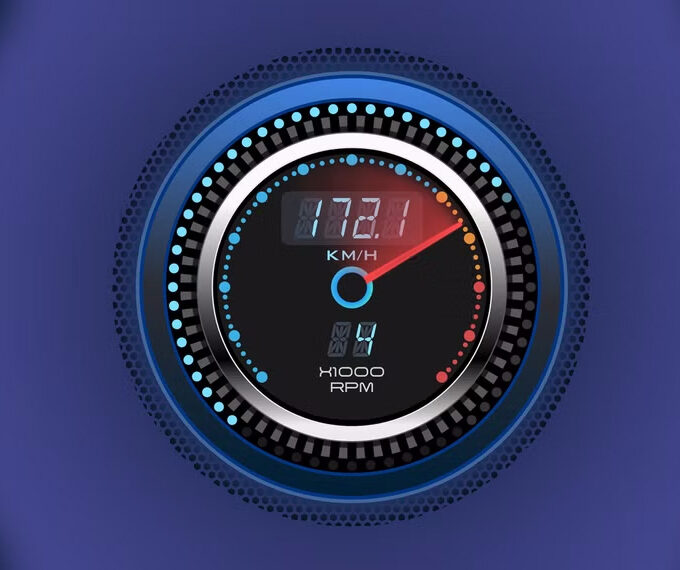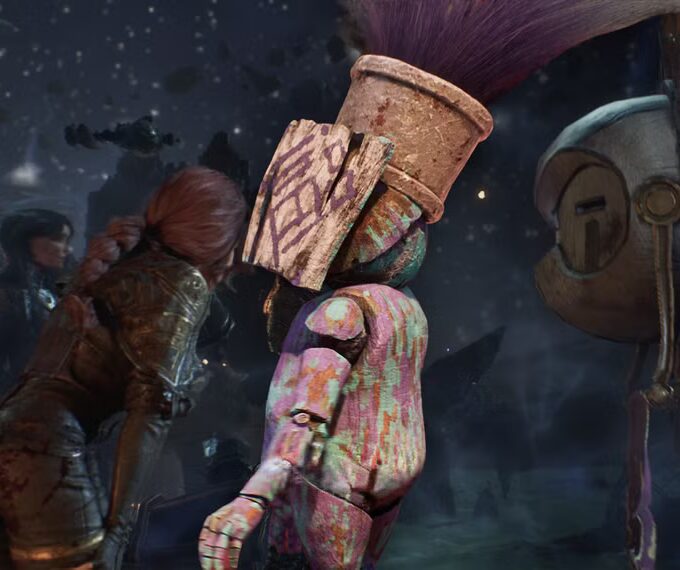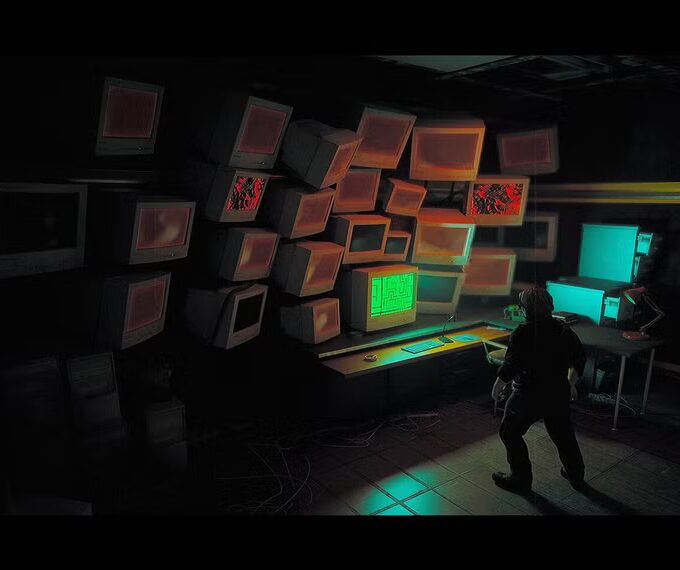Nearly six years after the launch of Remedy Entertainment’s unique action-adventure title Control, its ambitious cooperative first-person shooter, FBC: Firebreak, is poised to continue that legacy with a fresh gameplay experience rooted deeply in the iconic Control universe. Set roughly six years following the events of the original game, FBC: Firebreak brings players back to the mysterious Oldest House, tasking them with teaming up to battle entities corrupted by the Hiss. Even for those unfamiliar with Control, the game aims to offer accessible, spontaneous gameplay, serving as a compelling entry point into the expanding Remedy Connected Universe. Recently, Game Rant had the opportunity for a hands-on preview event, spending several hours experiencing three of its distinct game modes.
FBC: Firebreak marks a significant departure for Remedy Entertainment, a studio renowned for its single-player, narrative-driven franchises like Alan Wake and Control. However, despite this shift to a co-op FPS format, one clear takeaway from spending nearly three hours with the game is that it is already shaping up to be a non-stop rush of over-the-top action packed with hilarious, signature Remedy gags.
Core Pillars of FBC: Firebreak
The design of FBC: Firebreak is built upon four fundamental pillars intended to ensure the game is immediately fun and remains engaging over extended play sessions:
- Only in Control: This pillar emphasizes the game’s unique setting and scenarios, featuring enemies and events that could only exist within the bizarre reality of the Control universe.
- Pick Up and Play: Highlighting accessibility, this philosophy means FBC: Firebreak avoids daily grind requirements or mandatory logins, allowing players to enjoy the game at their preferred pace.
- Better Together: Designed primarily for three-player co-op, this pillar ensures players of different skill levels can team up and enjoy missions together without penalty.
- Fun on Repeat: Replayability is fueled by the game’s distinct missions (called “Jobs”), diverse loadout options, and challenges that evolve, rather than relying solely on frequent new content drops.
Exploring the Oldest House Through “Jobs”
In the preview build of FBC: Firebreak, players had access to three of the game’s Jobs: Paper Chase, Hot Fix, and Ground Control. While it appears the full game will eventually feature at least six different Jobs to choose from for a session, the three available provided more than enough content to get a strong feel for what’s to come.
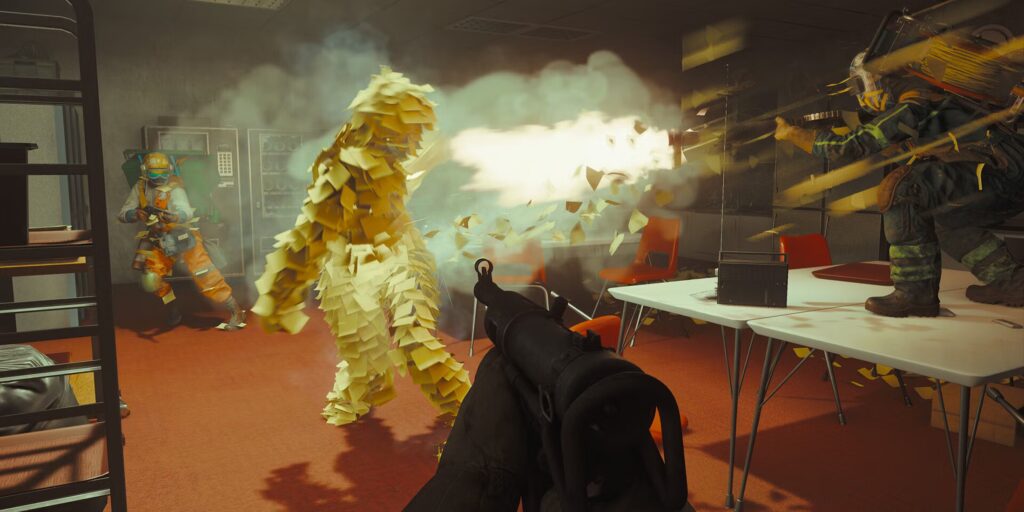
All Jobs in FBC: Firebreak feature two key modifiers: Clearance Level and Threat Level. Clearance Level determines how much of a specific Job is accessible, effectively controlling the session length. There are six Clearance Levels per Job, with each level granting access to the next area upon completing the previous one’s objective. Players seeking a quick session might choose a lower Clearance Level, while those wanting the full experience would opt for Clearance Level 6. Threat Level, conversely, controls the difficulty, offering four options. Our preview team initially attempted a Moderate Threat Level but found it challenging, ultimately lowering it to Low Threat to better experience the game’s mechanics.
The true strength of FBC: Firebreak’s Jobs lies in their diversity. Not only does each Job offer unique objectives, enemies, and environments from the start, but they also become increasingly distinct as players progress through higher Clearance Levels. This design choice adds significant replayability, ensuring players will continue discovering new aspects of the game over time. Higher Threat Levels further enhance replayability by introducing more enemies and unpredictable challenges.
Previewed Jobs: Sticky Notes, Ventilation, and Leeches
Paper Chase: Located in the Executive Sector, this Job involves culling an outbreak of sentient sticky notes – a bizarre premise perfectly fitting Remedy’s signature embrace of the absurd. Paper Chase expertly blends FBC: Firebreak’s chaotic action with its horror-infused humor, creating an ideal backdrop for cooperative play. The core objective is simple: destroy sticky notes. However, these seemingly innocuous pieces of stationery are surprisingly dangerous. Players start by destroying thousands of sticky notes scattered across the ground while fending off waves of Hiss. As players progress to higher Clearance Levels, the number of sticky notes to destroy escalates dramatically (hundreds of thousands, even millions), and they begin forming more dangerous enemies, including a boss named “Sticky Ricky” at Clearance Level 3. A crucial mechanic requires players to regularly “shower” to remove sticky notes that latch onto them; failing to do so results in transforming into a sticky note Hiss, which is a death condition.
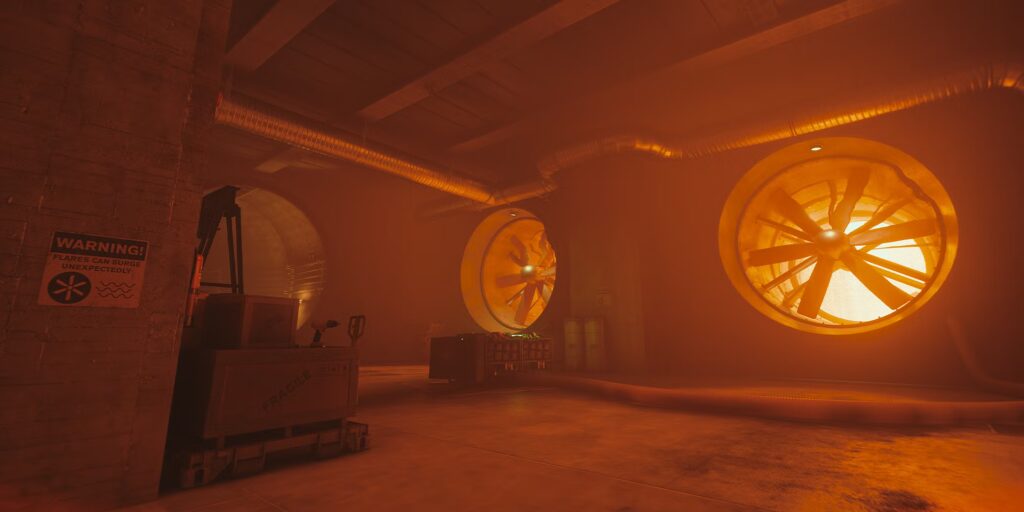
Interestingly, showering also serves as the primary method for players to replenish health (lost after shields are depleted) and remove harmful status effects. Shields are also more effective when players stay close together, passively encouraging teamwork. Each zone has shower and ammo stations, but they often need repairing using the game’s unique Tools or by manually inputting a series of commands (which carries a risk of self-inflicted harm if done incorrectly). Friendly fire is present, though less potent against teammates, but powerful weapons can still cause accidental kills. Players can typically be revived by teammates indefinitely, except when transforming into a sticky note Hiss. A limited number of shared team “Redeploy” lives allow players to revive themselves if no other option is available. The climax of each Job involves an intense escape sequence: after completing objectives, players must fight through an endless wave of Hiss towards an evacuation elevator, often encountering a powerful “Dangerous Hiss” boss that must be defeated before the elevator button can be pressed. Waiting for the elevator’s arrival while holding off the onslaught provides some of the most chaotic and often hilarious moments in the game.
Hot Fix: Situated in the Maintenance Sector, Hot Fix proved to be arguably the most complex Job previewed. Unlike the straightforward shooting of Paper Chase, Hot Fix centers around teamwork-oriented problem-solving, making it an excellent choice for players who enjoy puzzles. The complexity increases with higher Clearance Levels. In Hot Fix, temperature is a key environmental hazard. Players attempting to repair the ventilation system may catch fire (depleting health, requiring showering or a teammate’s water spray) or freeze (severely slowing movement, affecting both players and enemies). Despite the focus on teamwork for puzzles, Remedy states all Jobs can technically be completed solo. The escalating complexity of the puzzles in Hot Fix at higher Clearance Levels makes it a particularly rewarding Job for cooperative play, requiring more thoughtful solutions.
Ground Control: The third and final Job previewed, Ground Control, takes place in the Quarry. It felt slightly less intense than Paper Chase or Hot Fix, offering a more laid-back experience. The main objective involves collecting “Leech Pearls” from “Leech Pods” hanging from the ceiling and depositing them into a nearby shuttle that moves along tracks. While less frantic, players still need to manage regular (though less threatening) Hiss waves. Crucially, picking up a Leech Pearl subjects players to radiation, which gradually depletes health once the debuff fully sets in. Between zones, players must clear out a large group of Hiss before they can proceed to the final evacuation sequence.
Crisis Kits and Progression: Customization and Agency

From a gameplay perspective, FBC: Firebreak offers a refreshing amount of player customization and agency, more so than many cooperative games. A key design philosophy is that almost everything is optional, providing players with multiple ways to approach Job objectives. This is most evident in the game’s “Crisis Kits” and progression system.
Crisis Kits are specialized loadouts defining a player’s role and abilities. There are three types: the Fix Kit, the Jump Kit, and the Splash Kit. Each includes a unique Tool, an improvised device, and an Altered Augment, along with customizable slots for a gun and a grenade.
- Fix Kit: Includes the Wrench Tool, used for repairing broken stations and fuse boxes (or as a melee weapon).
- Jump Kit: Includes the Electro Kinetic Charge Impactor Tool, used for powering electronics and delivering electric area-of-effect attacks on wet surfaces.
- Splash Kit: Includes the Crank-operated Fluidic Ejector Tool, which shoots water to extinguish fires, cool players, and slow enemies.
While Crisis Kit Tools make completing objectives easier (like using the Wrench to repair), jobs can technically be completed without ever using them by performing manual inputs (though risky). With three unique Kits and a three-player team size, synergistic use of different Kits is encouraged but not mandatory.
Progression in FBC: Firebreak follows a familiar online game loop: complete Jobs, gain XP, level up. As players gain experience with a specific Crisis Kit, they unlock and enhance perks that augment their gameplay, offering bonuses that can help tackle higher Threat Levels. A significant part of progression revolves around “Lost Assets,” acquired by completing Jobs. Lost Assets introduce a risk-reward element: players who use the Redeploy mechanic upon death drop their accumulated Lost Assets and must retrieve them.
Lost Assets are spent on “Requisitions,” which include Tool upgrades, new guns, grenades, and cosmetic items. A great aspect of this system is its non-linear nature; players aren’t forced to purchase prerequisite items and can save up for their desired upgrades from the start. During the preview, progression was accelerated to allow testers to see more content, making it difficult to judge the final progression balance at launch.
Final Impressions
FBC: Firebreak feels like Remedy’s most significant leap yet and is undeniably one of their most exciting projects. It successfully distills the absurdity, danger, and surreal charm of the Control universe and translates it into a compelling co-op FPS. Crucially, it achieves this without sacrificing the studio’s unique creative identity. The game’s embrace of player freedom, clever mission design, and distinctively offbeat tone imbue it with a personality often missing in many live-service titles. The spontaneous nature of each session, driven by escalating challenges and random elements, keeps repeat playthroughs feeling fresh.
From the versatile Tools and Crisis Kits to the escalating challenge of Clearance and Threat Levels, FBC: Firebreak constantly encourages players to experiment, improvise, and laugh through the madness of the Oldest House. While some questions about the full experience remain, particularly regarding progression balance and long-term content depth, what is already present makes a strong case for FBC: Firebreak’s potential. It manages to be accessible without being shallow, humorously silly without being throwaway, and chaotic without feeling frustrating. Whether chasing millions of sentient sticky notes or navigating malfunctioning environmental systems, every moment is infused with Remedy’s trademark weirdness and sharp mechanical design. If the final release maintains this quality, FBC: Firebreak could very well become one of the most unexpectedly replayable games of the year.





